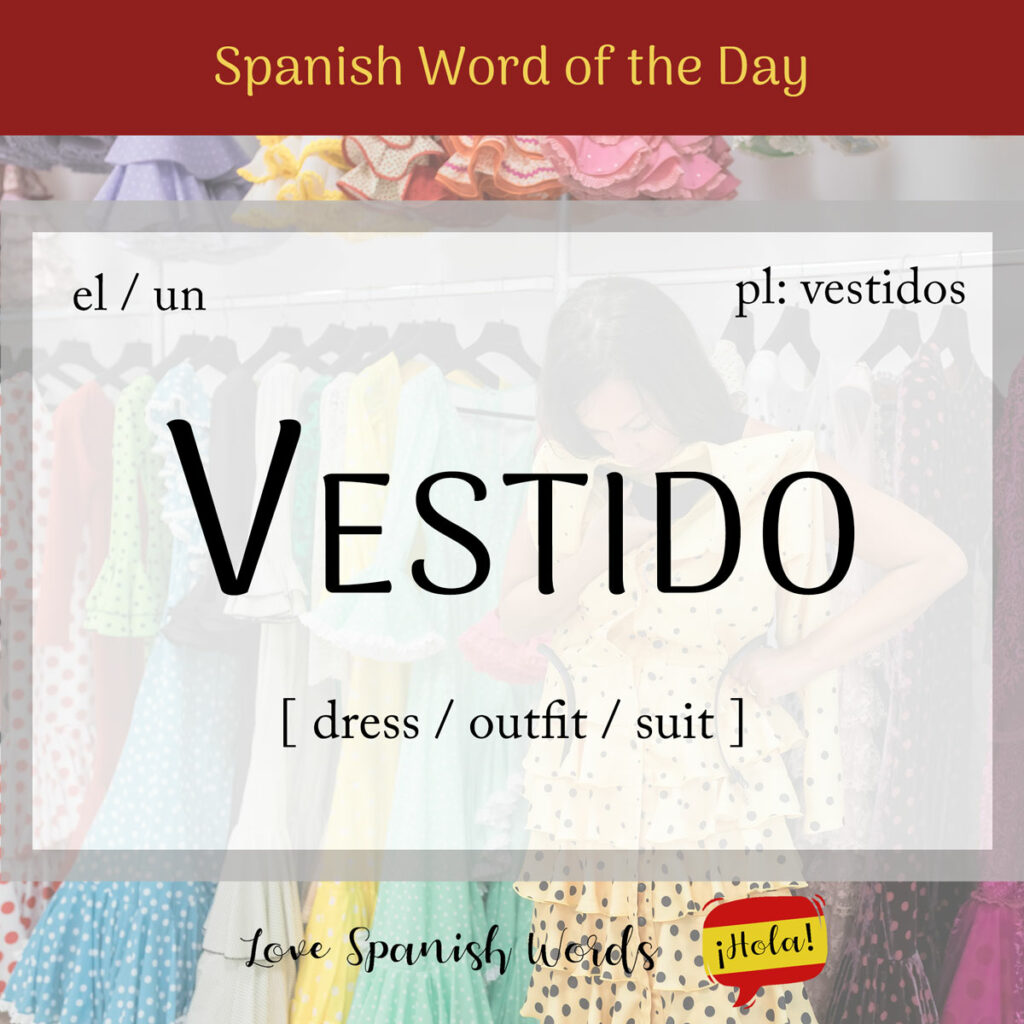Dresses: they can be elegant, practical, or even quirky and fun. In Spanish, this versatile garment is known as a vestido. But beyond its role as clothing, vestido encompasses much more. Let’s delve into its meaning and usage below.
The word vestido comes from the Latin vestītus or vestire which both mean to cover oneself in clothes.
Latin American Pronunciation
European Pronunciation

Vestido can be both a noun and an adjective.
As a masculine noun meaning dress, outfit, costume, garment, etc., vestido takes the following definite and indefinite articles:
- el vestido = the dress
- los vestidos = the dresses
- un vestido = a dress
- unos vestidos = some dresses
Este es un vestido fabuloso que hará girar cabezas.
This is a fabulous dress that will turn heads.
As well as meaning a dress traditionally for a woman (mujer), vestido can mean a suit traditionally for a man (hombre). Vestido also lends itself to various other general and specific garments:
- vestido de fiesta = party dress
- vestido de noche = evening dress
- vestido de novia = wedding dress/bridal gown
- vestido de baño = bathing suit
- vestido isotérmico = wet suit

Did you know…?
The collective noun for clothes is vestimenta or ropa, both feminine nouns.

As an adjective meaning dressed, clothed, clad, etc. vestido agrees with its subject in both gender and quantity:
- vestido = dressed, masculine,
- vestida = dressed, feminine
- vestidos = dressed, masculine, plural
- vestidas = dressed, feminine, plural
Se veía tan guapo vestido de uniforme.
He looked so handsome dressed in uniform.

Did you know…?
Vestido is the past participle of the irregular verb vestir “to wear.”

